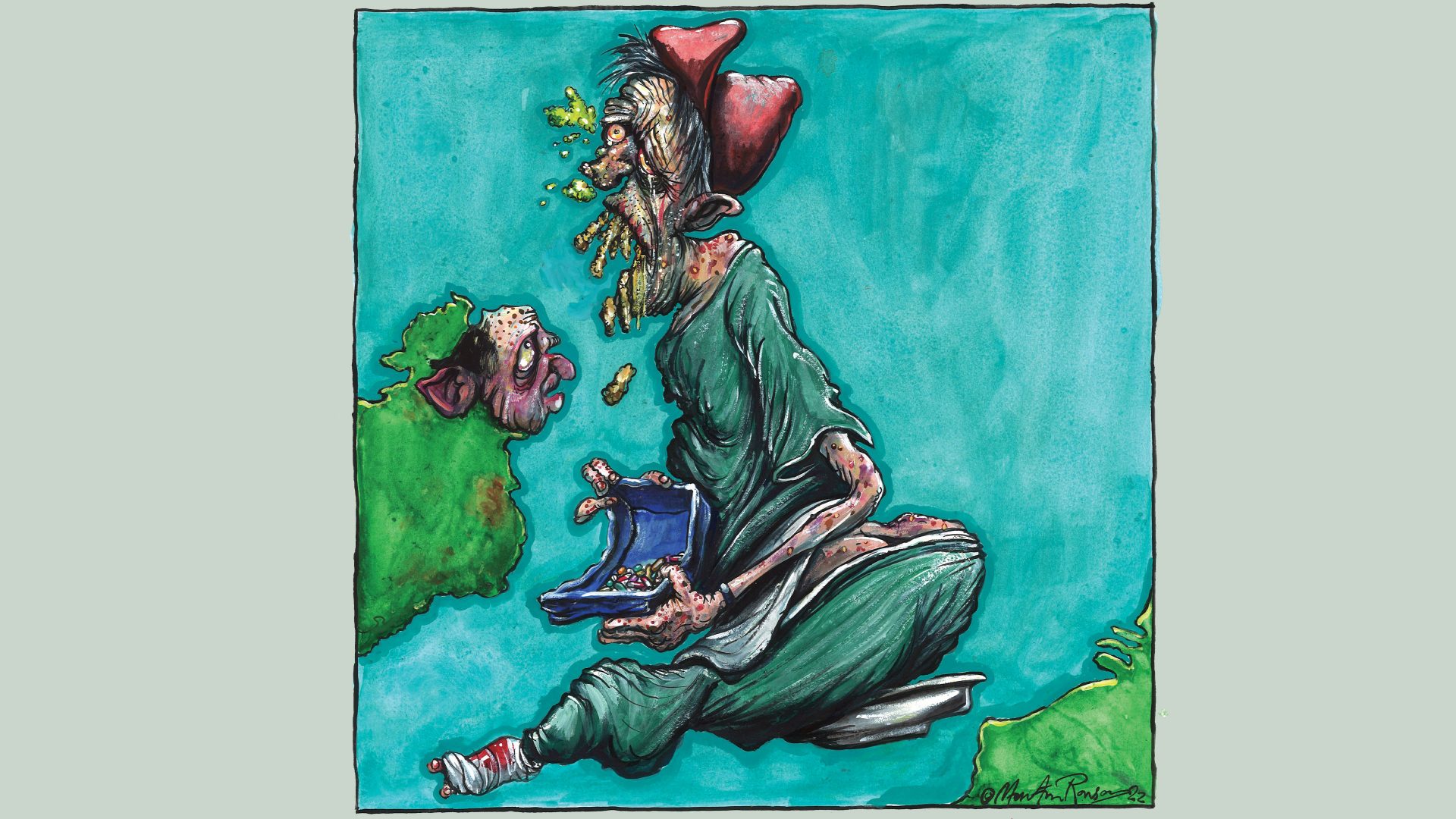Jeremy Hunt delivered his fiscal statement with the air of an opera house manager who has to tell the audience that the tenor has fallen ill, and that the show is cancelled. Beyond our control. No refunds. Please leave the auditorium.
Hunt’s job was to salvage from the wreckage of the British economy a recession “one percentage point less deep” than it might have been. His means of doing so is to borrow £317bn over the next two years – about twice as much as expected six months ago – to stop hospitals, schools and social care services collapsing.
As for the rest of Britain’s public sector, its funding will be eaten from both ends: by 11% inflation now, and by £56bn worth of spending cuts between 2025 and 2028. Families will see their living standards fall by 7%, wiping out an entire decade’s worth of progress. They’ll be lucky if their real incomes in 2028 are anywhere close to where they were on the eve of the pandemic.
So what’s ahead of us might be the worst two years, economically, in living memory: certainly worse than the post-Lehman Brothers slump; worse than Covid; worse than the first three years of the Thatcher government. A much-shared bar graph showing the UK facing the sharpest GDP decline in Europe next year (-1.4% compared with Ireland’s predicted +3.2%) makes clear the depth of the crisis we are facing.
But Hunt’s sombre tone was prompted by something deeper: the tacit realisation that British conservatism has come to the end of a long era. What failed over the summer was not just an economic doctrine. The Conservative Party itself failed as a trustworthy steward of government.
The Tories lost control of the economy because the economy – in the form of the enlightened self-interest of British business – had lost control of the Conservative Party. The party had become an instrument for political elite self-preservation: a machine to keep people like Boris Johnson in power, and their advisers – in Dominic Cummings’ famous words – in close proximity to “hot women and beer and pizza and music in the office on Friday and Saturday night”.
Brexit was the triumph of ideology over economic self interest. Hard Brexit then turned the Tory party into a Utopian cult. When Brexit, inevitably, began to weaken the fundamentals of the UK economy – trade, labour supply, investment and productivity – the cult mentality kicked in: not just among the members, but in Truss, Kwarteng and their hangers-on. Belief in Brexit, belief in the small and xenophobic state would get us through, they believed.
One look at the OBR report, which they did not want to see, presents the invoice for such recklessness. Business investment has cratered. Trade is no longer driving growth. Even the “recovery”, when it comes sometime in 2024, will – says the OBR– herald two and a half years of deflation.
What’s run into a wall here is a doctrine, an ideology and an economic model. Since 2010 we’ve tried conservatism in all its potential forms: globalism plus austerity; soft Brexit plus austerity; hard Brexit plus the big state; hard Brexit plus the small state; and now hard Brexit plus austerity – which, for those of us who understood reality, was always going to be the destination.
What is worse for the Conservative Party, there are very few sources of intellectual renewal. Even as he borrowed to soften the recession, Jeremy Hunt lectured Labour that “you cannot borrow your way to growth”. The Tufton Street thinktanks, who were trumpeting the great laboratory experiment in mid-September, have changed the subject: there’s more money in climate change denial and anti-wokeness now than in peddling the busted ideology of trickle-down.
It is possible that somewhere, in a quiet rural constituency or the senior common room of a university, there exists a British conservative thinker who understands the profound damage Brexit has done to Britain’s geopolitical position, and to its economy, and the need for a state-led, green industrial revolution to put it right. But where would they go? What small talk could they make at Rupert Murdoch’s parties, or on the Spectator podcast?
The phrase taped to the shelf of every penny-pinching shopkeeper springs to mind: all breakages must be paid for. The Conservatives should be made to pay for this disaster with a generation out of power. And that means, for those who have opposed them, the unflinching narration of the cause-and-effect sequence that got us here.
Free market globalisation worked until the dotcom crash; then it needed the life support of cheap credit to keep going; cheap credit crashed the banking system, requiring central bank money printing to keep the economy alive. Austerity eroded social solidarity. Brexit created needless friction with a market of 450 million people. And at every stage British conservatism doubled down – on economic nationalism, crass xenophobia and legalised corruption. And then the central bank stopped printing money, and the rest you know from the headlines.
I fear for what happens next. There is poverty everywhere in Britain. People with technically decent jobs are arriving at food banks. Kids are dying from inhaling the mould in their bedrooms. The complex, proactive stuff a state must do – like monitoring and disrupting child-exploitation networks, or getting patients through the A&E triage system within 12 hours – runs into the problem of no money, no people and no political will. And that’s before the most severe effects of Hunt’s austerity kick in.
We have an opposition party that, despite the fears of its doomy left, has refused to accept the logic of austerity. Labour remains committed to a state investment-led recovery, a skills revolution and green growth. What’s missing is a narrative of what went wrong: the open critique of hard Brexit needed to convince those who voted for it that they were mistaken.




